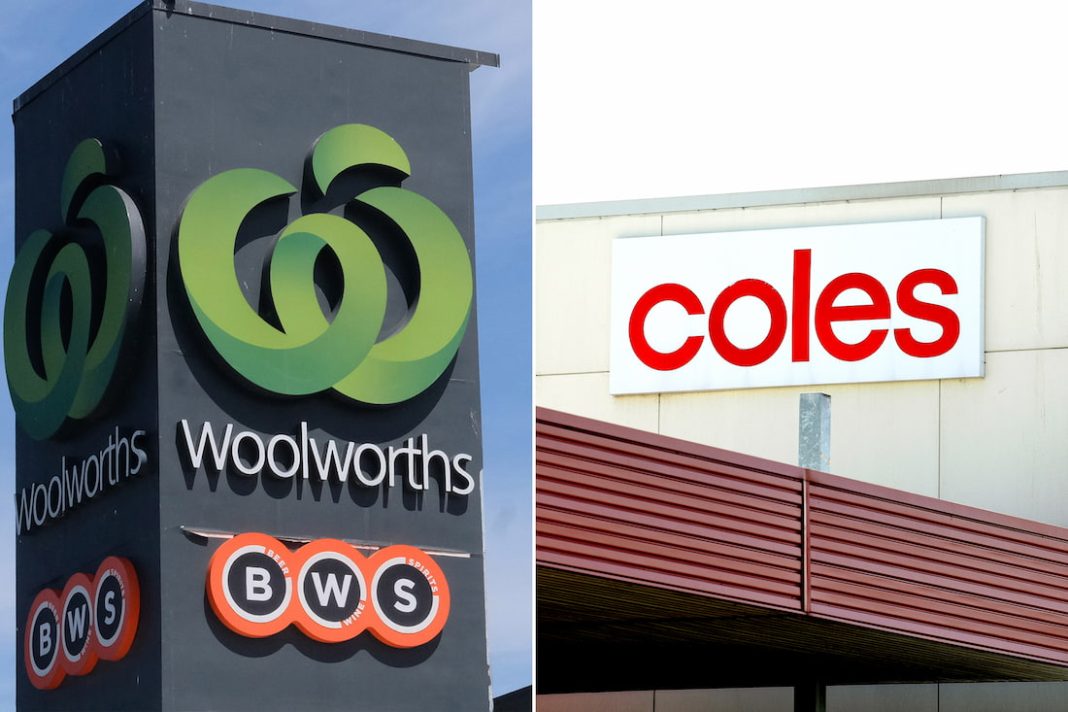Retail giants Coles, Woolworths and Bunnings could be broken up if found to be price-gouging consumers in a bid to curb rising grocery costs.
The consumer watchdog would be given divestiture powers as a method of last resort to address anti-competitive behaviour in the supermarket and hardware sectors, according to plans laid out by the opposition should they win the next election.
The new powers would bring the Australian Competition and Consumer Commission in line with US and UK counterparts, addressing concerns about rising checkout prices, Opposition Leader Peter Dutton said.
Speaking to reporters in Canberra on Tuesday, he insisted it was not a departure from the Liberal Party’s free market principles but was instead a Menzian move that would help small businesses and farmers compete against oligopolists.
“The situation in Australia at the moment is that there’s a massive concentration of market share within the two major companies, within Coles and Woolies,” Mr Dutton said.
“There are many complaints, and validly made by consumers as well, who are worried about what it means when they go to the checkout with ever-increasing prices.”
He said safeguards would be put in place to ensure jobs would not be lost if the divestiture moves went ahead.
For the powers to be applied, a court would have to find that divestment would result in a substantial improvement in competition and be in the public interest.
The announcement comes after a Greens-led inquiry into supermarket pricing recommended breaking up the duopoly of Coles and Woolworths to prevent them from abusing their market share.
Nationals Leader David Littleproud said the major supermarkets had been “cleaning up” at the expense of farmers and consumers, as evidenced by beef and sheep prices dropping by 60-70 per cent in June, while checkout prices only shrank eight per cent.
“This is a commodity that underpins all life,” he said.
A separate review of the Food and Grocery Code by former Labor minister Craig Emerson advised against breaking up the supermarkets, warning it would lead to less competition and job losses.
Divested Coles and Woolworths stores would be forced to close without large-scale competitors waiting in the wings to snap them up, Dr Emerson said.
But Mr Littleproud was resolute.
“Your fellow Australians are going without meals because there isn’t transparency and fairness from the farmgate to your plate,” he said.
“When we produce enough food to provide for 80 million people and we’re 27 million people, and they’re making those decisions, surely you would have thought any government would have stood up and done anything they possibly can.”
Under the proposal, a supermarket commissioner would also be established to handle complaints within the sector, which would then be passed on to the consumer watchdog.
The government has ruled out divestiture powers as a way to rein in the supermarket duopoly, with Prime Minister Anthony Albanese branding it a “Soviet-style solution”.
The government will instead impose a mandatory code of conduct for how supermarkets treat suppliers.
Under the code, fines of up to $10 million would apply for breaches.
The Greens have backed divestiture powers and said they would provide the numbers to pass such a bill through the Senate.
“The Greens have long said that a more competitive supermarket sector would mean lower food and grocery prices. It is now only Labor standing in the way,” Senator Nick McKim said.
By Andrew Brown in Canberra



